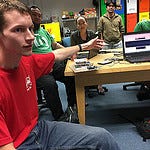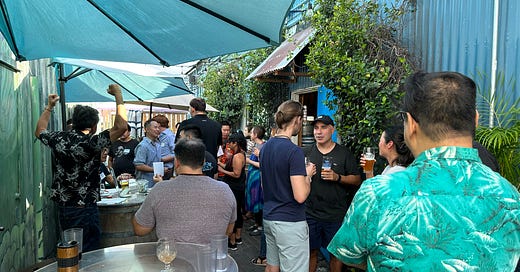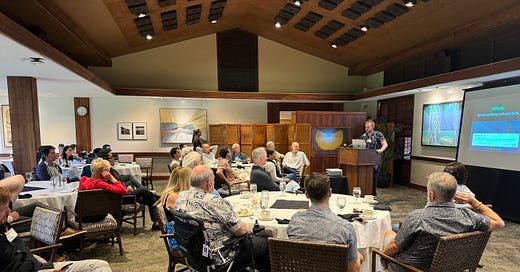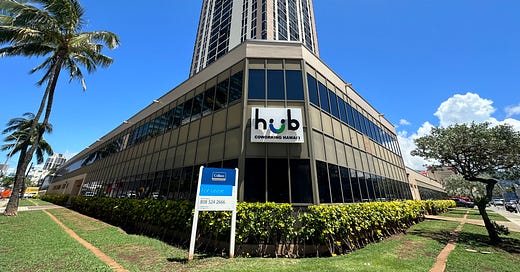Local Makers Urged to Help Shape Tech Policy
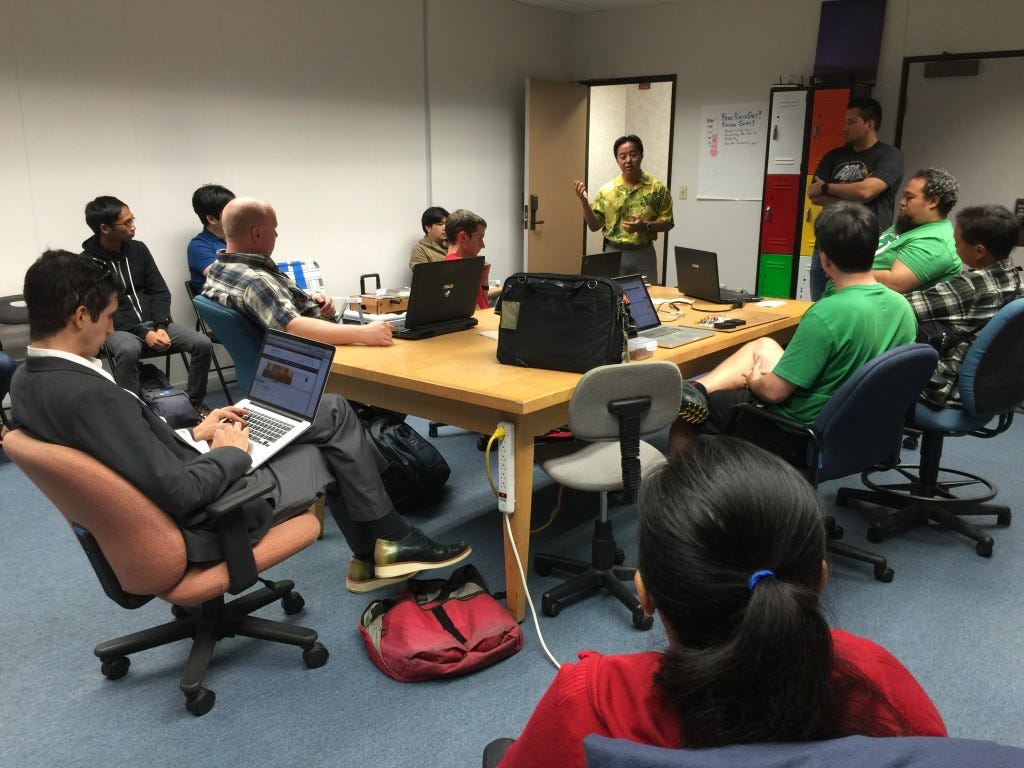
Members and fans of HiCapacity, one of Hawaii's first makerspaces, came together tonight for a combination general meeting and town hall session to discuss the future of the organization and its plans for 2015.
The wide-ranging conversation touched on everything from Act 221 and the role of the University of Hawaii to the incredible potential of affordable toolkits like Arduino and Raspberry Pi.
The evening's special guest was Sen. Glenn Wakai, chair of the Economic Development and Technology Committee. HiCapacity leaders Edward Kim, James Wang, and Noah Haffner gave the senator a full introduction to the makerspace movement, and some of the innovative projects its members were working on.
Sen. Wakai, in return, explained the need for Hawaii's tech community to have a strong voice in government, and gave several real-world tips for how to engage lawmakers and participate in the legislative process. Local media maker Ed White also offered his advice on ways to "hack the system" and build both political and community support for the maker community and the tech industry in general.
Although Sen. Wakai conceded that industries like tourism and agriculture have lobbyists who are paid to spend every day meeting with lawmakers, he said there are many ways to be heard and have an impact.
"It's all about relationships," the senator said, noting that Burt Lum was just a passionate advocate for open data, not a high-paid lobbyist. "I didn't know Burt before he came to the capitol to talk about open data, but he educated my colleagues and I, he made his case, we got to know him, and two years later, we passed a bill that wrote open data into state law."
The gathering also allowed Sen. Wakai to share some of the tech initiatives he had in mind for the upcoming legislative session. From big-ticket projects like a proposed $25 million building for the HTDC in Kakaako and expanding SBIR funding, to priorities like expanding affordable broadband access, to ideas like enhancing public libraries with makerspaces (which is already a national conversation).
Speaking hypothetically, Sen. Wakai said he could imagine a pilot project to allow interested libraries to propose and build makerspaces, with their successes and challenges informing a subsequent expansion. He said that such a pilot might call for $100,000 in funding, for example, which is big money for an individual but a drop in the bucket at state government scale, and something that could lead to much greater returns.
Kim noted that $100,000 could fund their makerspace for more than four years, and White added that the talents and creativity the makerspace supports could return that investment tenfold.
"There are more people in this room than there was at the start of Google -- two people -- or Instagram -- thirteen people," White said. "Today 50,000 people work at Google, and Instagram sold for $1 billion... and people are now saying they should have held out for more."
The value that makerspaces and the maker movement brings to the community range from accessible, cutting-edge educational opportunities for kids to fostering entrepreneurs and agile, scalable companies. The challenge is demonstrating those benefits to policy makers and the general public. Here's hoping that local makers spend some time at the state Capitol this year, and that they bring some Arduino kits and 3-D printed tools with them.
Check out more photos from tonight's meeting on Flickr.
